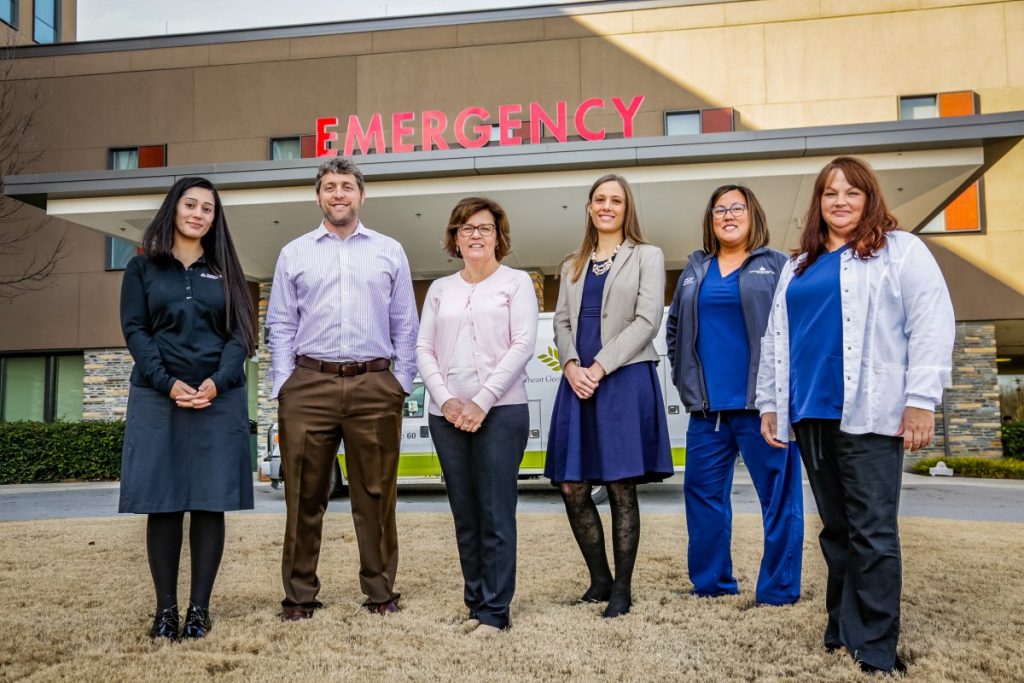
Northeast Georgia Medical Center (NGMC) Braselton continues to demonstrate its commitment to ensuring patients receive life-saving stroke care, as the hospital was recently designated a Remote Treatment Stroke Center by the Georgia Department of Public Health.
To earn this designation, the hospital’s stroke team demonstrated the ability to evaluate, stabilize and provide evidence-based treatment to patients with acute stroke symptoms – as well as having the resources to transfer patients who might require more complex surgery. NGMC’s established policies, protocols, data collection, resources, community relations and quality improvement were also important factors the state considered for this stroke designation.
“When it comes to stroke diagnosis and treatment, time is of the essence – and people in this community can rest easy knowing they can get fast, emergency stroke care right here at NGMC Braselton,” said Daniel Robinson, MD, medical director of NGMC Braselton’s Stroke Program. “Our team works around the clock to provide rapid assessment, diagnosis and treatment to anyone experiencing symptoms of a stroke.”
Knowing the acronym “B.E. F.A.S.T.” can help you recognize the signs of a stroke:
Balance – Watch for sudden loss of balance.
Eyes – Check for vision loss.
Face drooping – Does one side of the face droop or is it numb? Ask the person to smile. Is the person’s smile uneven?
Arm weakness – Is one arm weak or numb? Ask the person to raise both arms. Does one arm drift downward?
Speech difficulty – Is speech slurred? Is the person unable to speak or hard to understand? Ask the person to repeat a simple sentence, like “The sky is blue.” Is the sentence repeated correctly?
Time to call 9-1-1 – If someone shows any of these symptoms, even if the symptoms go away, call 9-1-1 and get the person to the hospital immediately. Check the time so you’ll know when the first symptoms appeared.
To learn more about the warning signs and stroke care at NGMC, visit www.nghs.com/stroke.
###

